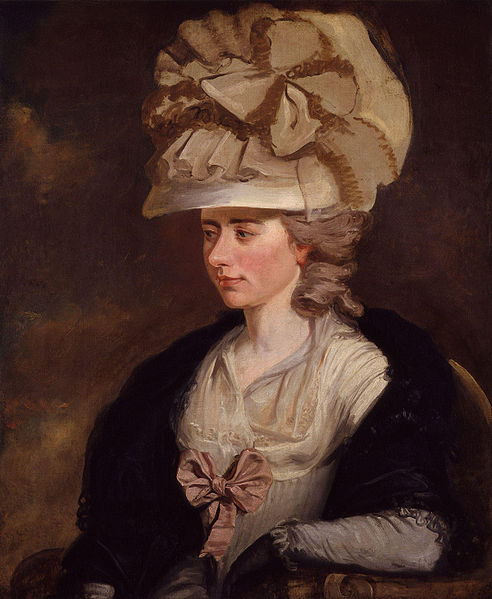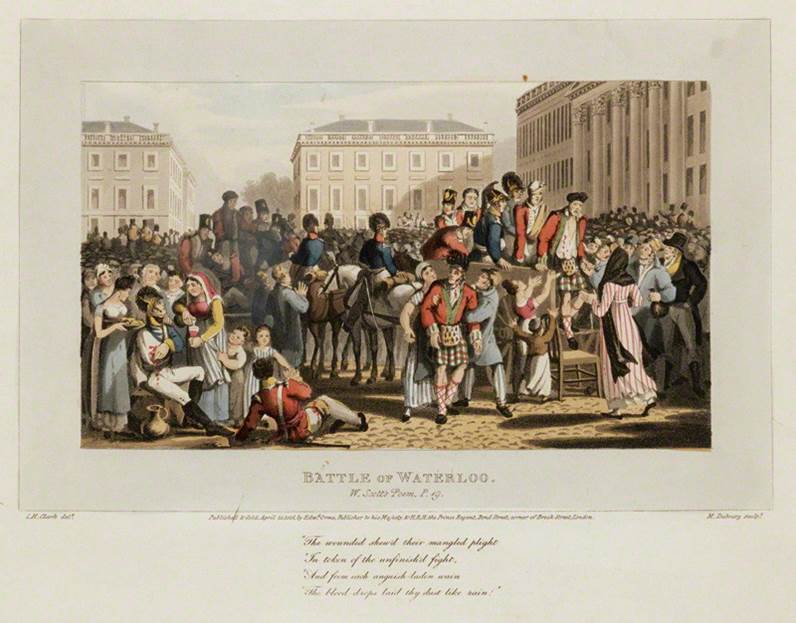
We take up Burney’s account of Brussels again on the day of the Battle of Quatre Bras. “I was again awakened at about five o'clock in the morning Friday, 16th June, by the sound of a bugle in the March aux Bois: I started up and opened the window. But I only perceived some straggling soldiers, hurrying in different directions, and saw lights gleaming from some of the chambers in the neighbourhood: all again was soon still, and my own dwelling in profound silence, and therefore I concluded there had been some disturbance in exchanging sentinels at the various posts, which was already appeased: and I retired once more to my pillow, and remained till my usual hour…
(Later) “… my ears were alarmed by the sound of military music, and my eyes equally struck with the sight of a body of troops marching to its measured time. But I soon found that what I had supposed to be an occasionally passing troop, was a complete corps; infantry, cavalry artillery, bag and baggage, with all its officers in full uniform, and that uniform was black.... I learned it was the army of Brunswick. How much deeper yet had been my heartache had I foreknown that nearly all those brave men, thus marching on in gallant though dark array, with their valiant royal chief at their head, the nephew** of my own king, George III., were amongst the first destined victims to this dreadful contest, and that neither the chief, nor the greater part of his warlike associates, would within a few short hours, breathe again the vital air!...
“What a day of confusion and alarm did we all spend on the 17th!...That day, and June 18th, I passed in hearing the cannon! Good heaven! what indescribable horror to be so near the field of slaughter! such I call it, for the preparation to the ear by the tremendous sound was soon followed by its fullest effect, in the view of the wounded, the bleeding martyrs to the formidable contention that was soon to terminate the history of the war. And hardly more afflicting was this disabled return from the battle, than the sight of the continually pouring forth ready-armed and vigorous victims that marched past my windows to meet similar destruction.”


 RSS Feed
RSS Feed